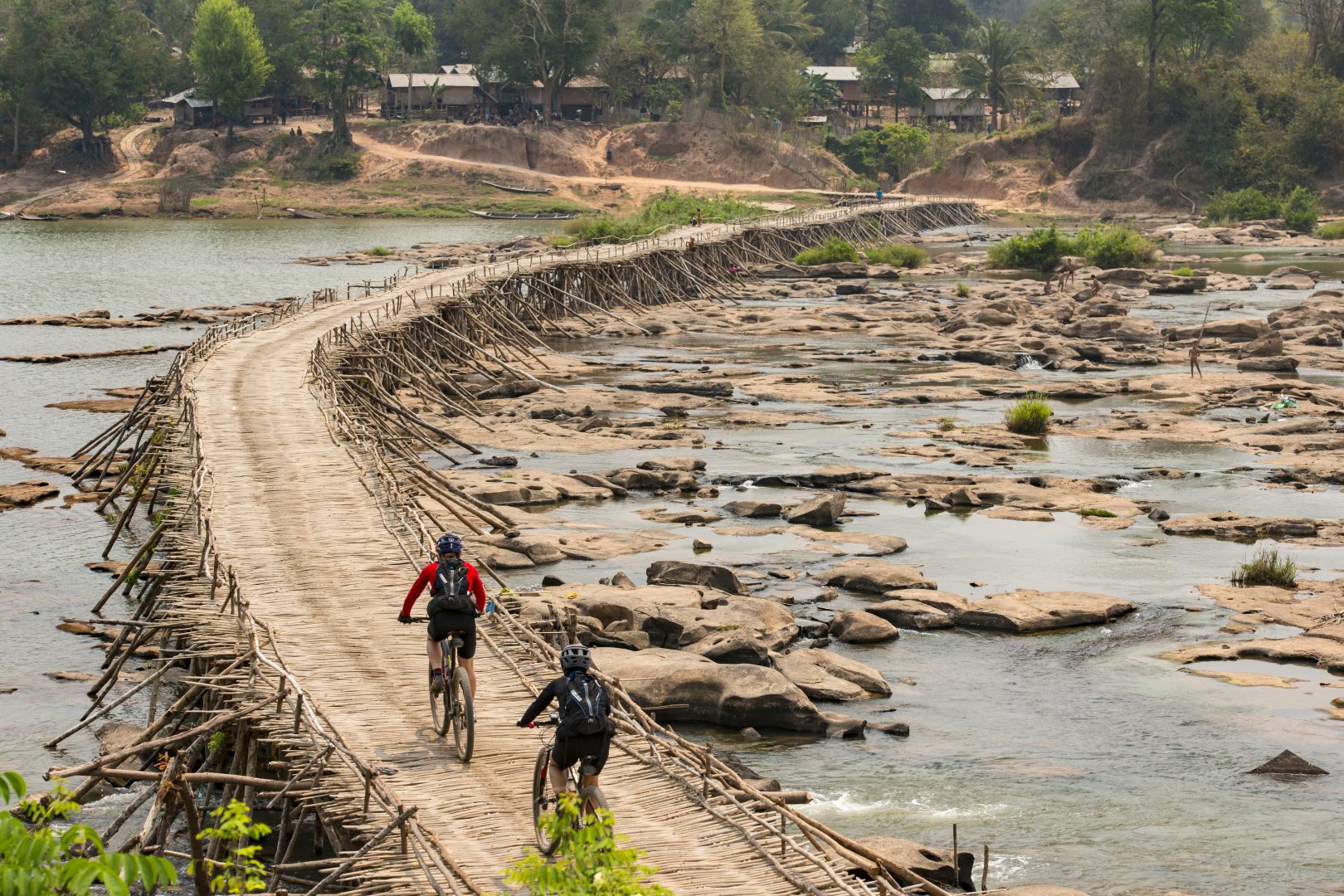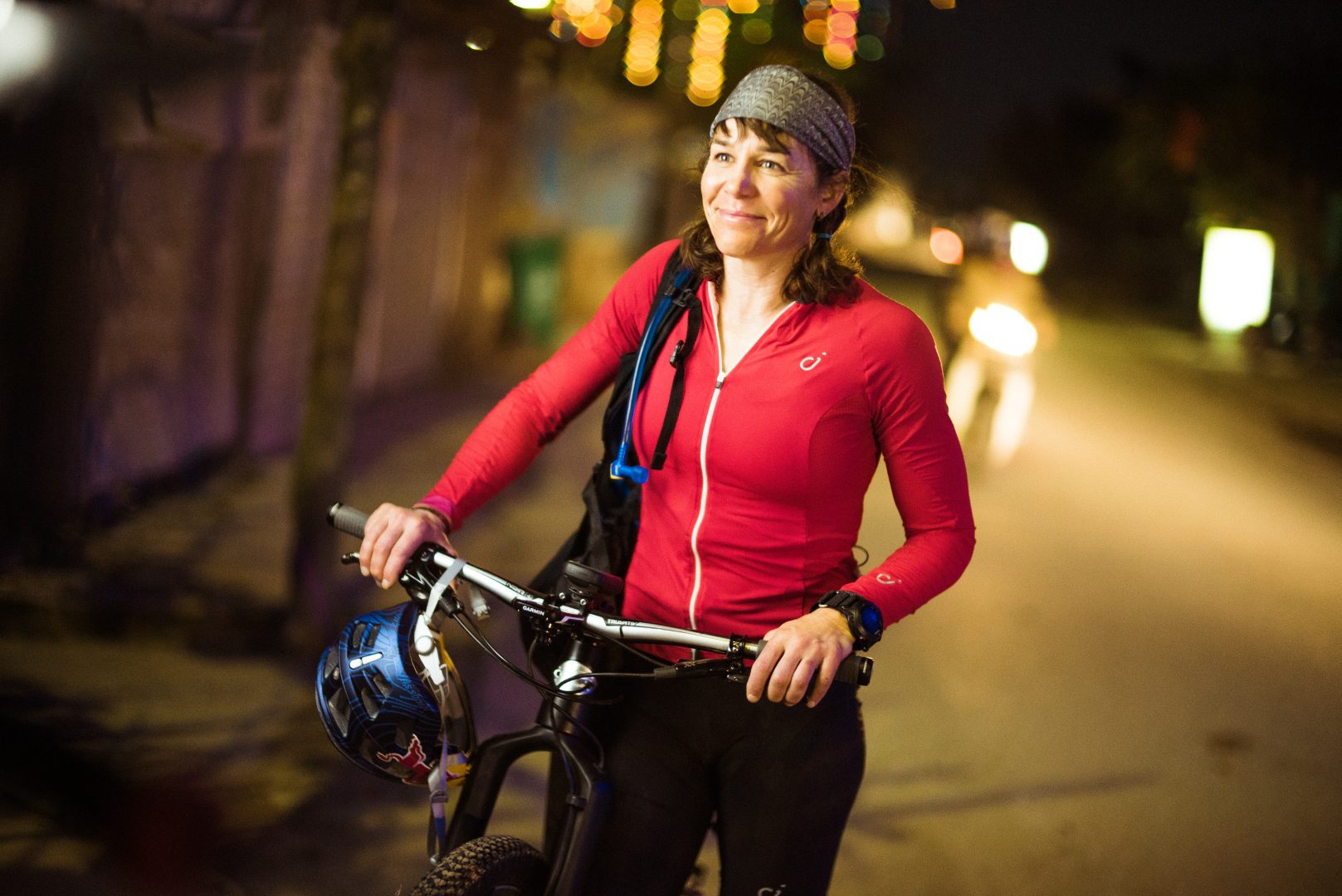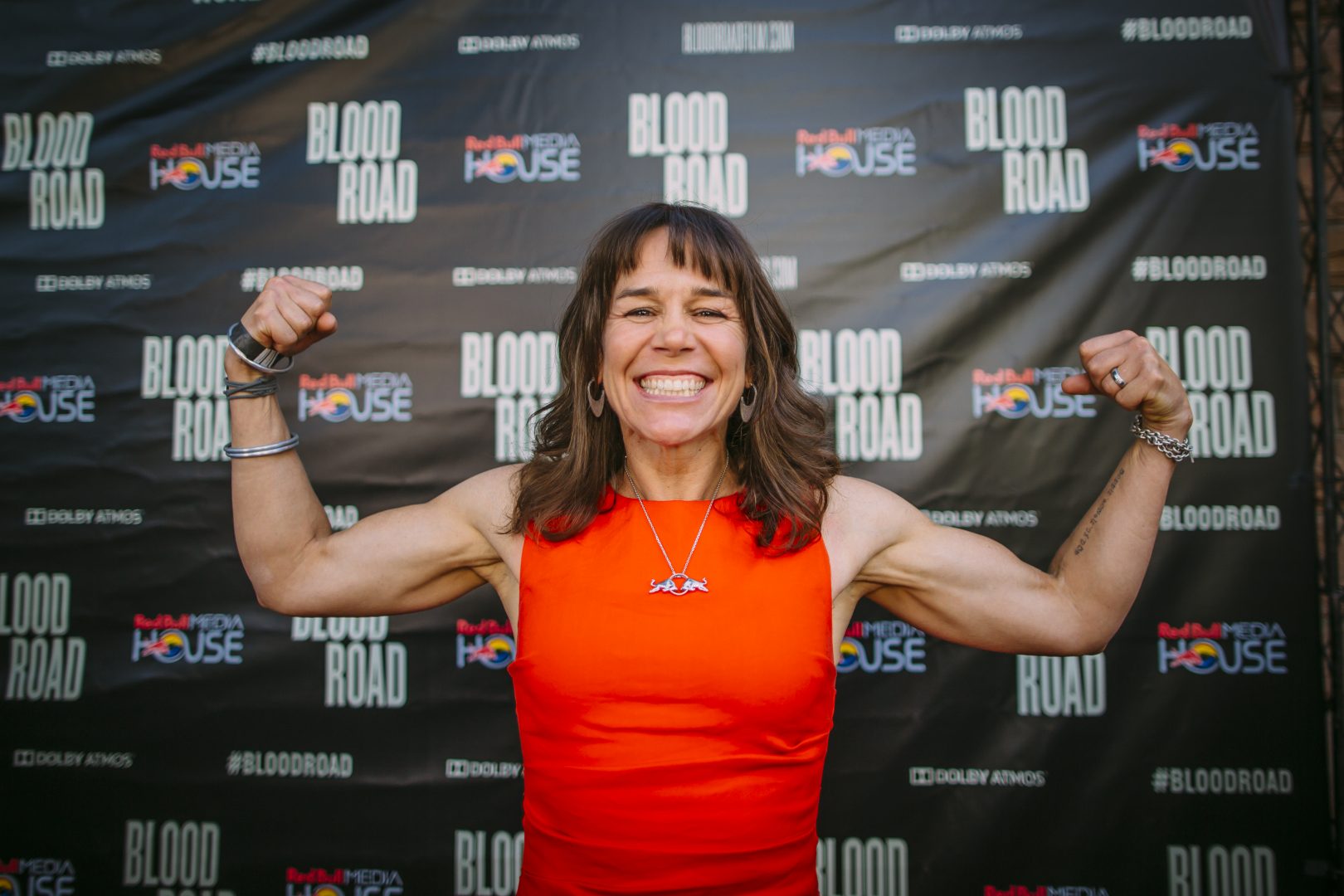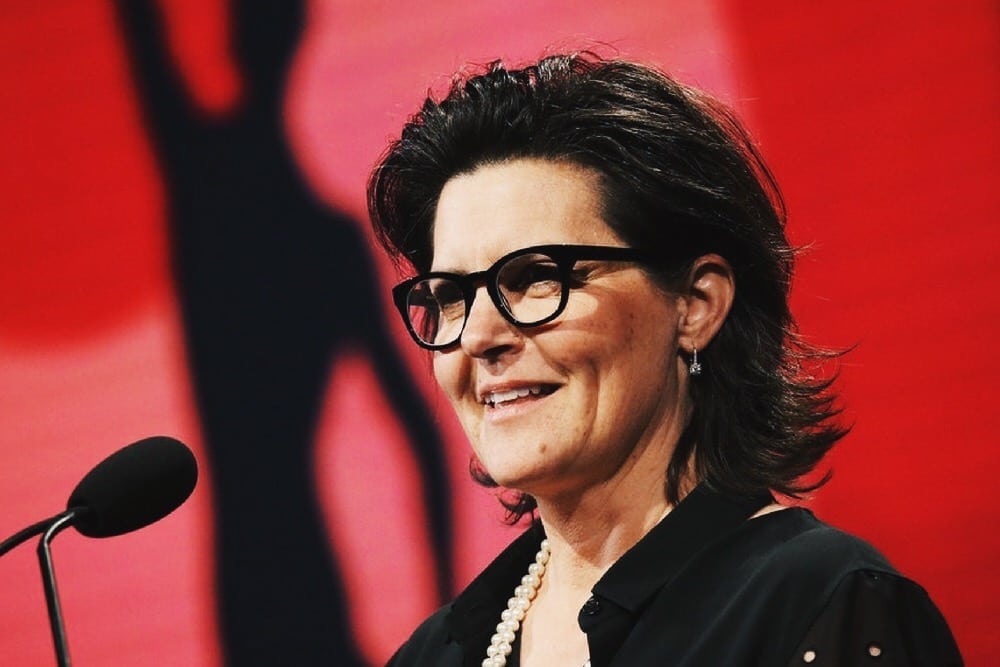Rebecca Rusch is known for pushing her body to the limit. Often referred to as the “Queen of Pain,” Rusch has been a professional athlete for over three decades. She is an ultra-endurance mountain biker and 7x World Champion. When she’s not competing, she volunteers as a firefighter where she lives in Ketchum, Idaho and also runs bike clinics to introduce women to the sport.
Rusch has shattered the glass ceiling in every sport she tackles, from adventure racing, rock climbing to skiing. But in 2015, she accomplished the most challenging journey of her life, while riding 1,200 miles along the Ho Chi Minh Trail in search of the site where her father’s plane crashed during the Vietnam War.
“There was nothing easy about this trip it challenged me on every level personally, professionally, emotionally. Over the years, I had built all of the skill necessary for this kind of undertaking, but still did not expect to be changed along the trail like I was,” she says.
Rusch first visited Vietnam in 2003, when she was competing in a jungle expedition race. While she was there, she felt a connection to her father, Stephen A. Rusch, a U.S. Air Force pilot who disappeared over the jungles of Laos near the end of the Vietnam War.

“In 2007 a search and recovery mission finally identified my dad’s remains at the crash site, and that’s when we finally knew that he had died in the crash that day in 1972. It took 30 years for us to know that he wasn’t alive, that he wasn’t a prisoner of war,” says Rusch, who was only three years old when her father’s plane crashed.
Riding the Ho Chi Minh Trail became the biggest, most adventurous ride of Rusch’s life, and is documented in the Red Bull Media House film, Blood Road, now available for free on Red Bull TV. The experience of self-discovery included 12-14 hours riding a day, through caves, jungles and the unforgiving landscapes of Laos, Cambodia, and Vietnam.
“The Ho Chi Minh Trail was the main supply route constructed and used by the North Vietnamese to move soldiers, equipment, and ammunition during the war,” she says. “The trail was a mix of all types of terrain from paved roads to remote jungle footpaths where we needed machetes.”
Rusch wanted to stay true to the historical flow of the trail and traveled from North to South with Vietnamese competitive biking champion Huyen Nguyen. They started outside of Hanoi, in the small town of Tan Ky, at times carrying their bikes because there were no trails and finished in Ho Chi Minh City.
“When you combine the strain of disruptive sleep, the hours each day on the bike, exposure to the elements, and perpetual motion day after day; all of these things take a massive, cumulative toll physically and emotionally,” she tells HER Magazine.

Developing the durability and maturity to complete this type of multi-day ride takes years, and that meant Rusch had to ramp up her training on the bike. Most of the work she did was endurance based, and she also spent time in a sauna to condition her body to adapt to the heat. “What’s important is how well your body holds up, how little do you break down, not necessarily how fast you are,” she says.
There was no such thing as an average day on the trail, and the logistical preparation was the most stressful. Theses trails change with each rainy season, bridges get washed out, and roads suddenly aren’t there anymore.
“The terrain was often remote jungle dotted by tiny villages connected only by small footpaths,” she says.
This was a dream excursion for Rusch, where she not only found a stronger connection to her father, but she found herself. Although the emotional journey was tough to prepare for, she was open and accepting as she ventured into this unknown territory.
“I knew it would be emotional, but as we rode closer to the crash site, I started to feel my dad’s presence strongly. The many miles on the bike riding toward the place allowed me time to mentally prepare, to meditate and also physically strip away my armor,” she says. “I’ve found a complete version of me, a better version of me.”
In the jungles of Southeast Asia, Rusch discovered a purpose. She couldn’t believe how much trash and unexploded ordnance still exist and threaten the local communities. She is working with the Mines Advisory Group to fundraise in her father’s name to clear the unexploded bombs and is leading tours in Laos to bring more awareness to other riders.
“I’ve decided that it is my responsibility to share what I have learned and to be part of the solution. My inheritance from dad was to learn that I could use my bike for a bigger purpose than winning races. I could use my bike to facilitate change and recovery,” she says.







